Home>Storage Ideas>Bathroom Storage>What Not To Store In A Bathroom Cabinet, According To Experts
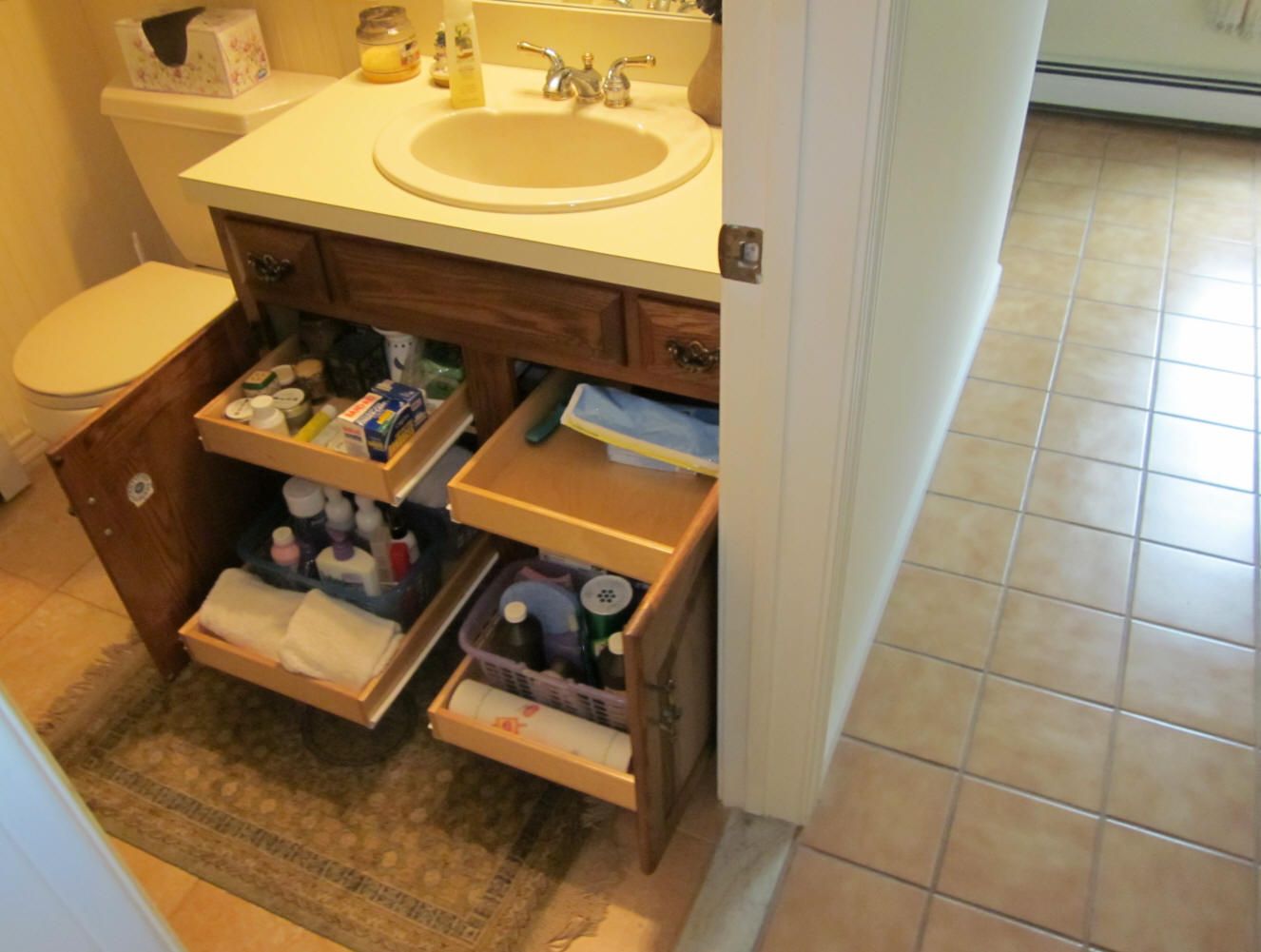

Bathroom Storage
What Not To Store In A Bathroom Cabinet, According To Experts
Modified: January 6, 2024
Discover what items you should avoid storing in your bathroom cabinet, as recommended by experts. Maximize your bathroom storage space efficiently.
(Many of the links in this article redirect to a specific reviewed product. Your purchase of these products through affiliate links helps to generate commission for Storables.com, at no extra cost. Learn more)
What Not to Store in a Bathroom Cabinet, According to Experts
When it comes to bathroom storage, it is important to consider not only what should be stored, but also what should not. Many people use their bathroom cabinets to store a variety of items, but some objects are better off stored elsewhere. To help you make the most out of your bathroom storage space and ensure the safety of your belongings, we consulted experts to compile a list of things you should avoid storing in your bathroom cabinet.
Key Takeaways:
- Avoid storing makeup, medications, fragrances, electronics, jewelry, cleaning supplies, food, moisture-sensitive items, flammable materials, and expired products in your bathroom cabinet for safety and preservation reasons.
- Declutter and organize your bathroom cabinet to create a functional and visually appealing space, ensuring easy access to essentials and promoting a sense of calm and relaxation in your bathroom.
Makeup and Beauty Products
Your bathroom cabinet may seem like a convenient place to store your everyday makeup and beauty products. However, the humidity and temperature fluctuations in the bathroom can cause these products to degrade faster. Certain cosmetics, such as liquid foundations and mascara, can even harbor bacteria and become a breeding ground for contamination. It is best to store your makeup and beauty products in a cool, dry place outside of the bathroom, like a bedroom dresser or a vanity table.
Medications and Prescriptions
While keeping medications and prescriptions easily accessible may seem convenient, the bathroom is not an ideal location for storing them. The moisture and heat in the bathroom can affect the potency and stability of medications, rendering them less effective or potentially harmful. Instead, store medications in a dry, dark, and cool area, such as a medicine cabinet in your bedroom or kitchen, away from direct sunlight and humidity.
Fragrances and Perfumes
Fragrances and perfumes are delicate and can be easily influenced by environmental factors such as heat, light, and humidity. Storing them in a bathroom cabinet can lead to degradation and changes in scent. To preserve the quality and longevity of your fragrances, it is best to keep them in a dry and cool area, preferably in a bedroom or closet.
Electronics and Appliances
Electronics and appliances, such as electric toothbrushes, hair dryers, and curling irons, can be negatively affected by the moisture and humidity in the bathroom. Water damage can shorten their lifespan and pose safety risks. Store these items in a dry area, away from moisture, to ensure their longevity and safe usage.
Jewelry and Valuables
Bathroom cabinets are not secure storage locations for jewelry and valuables. Moisture, steam, and potential accidental spills can damage or tarnish precious metals and gemstones. It’s recommended to keep your jewelry and valuables in a secure lockbox or safe in a different area of your home.
Cleaning Supplies
While it may seem convenient to store cleaning supplies in the bathroom cabinet, it is not the best option. The chemicals in cleaning products can emit fumes that can be harmful if inhaled in an enclosed space, such as a bathroom. Additionally, the moisture in the bathroom can cause cleaning solutions to break down or leak. Keep your cleaning supplies in a well-ventilated storage area outside of the bathroom.
Food and Beverages
Storing food and beverages in the bathroom cabinet is unhygienic and can lead to cross-contamination. The moisture and heat in the bathroom create an ideal environment for bacteria growth. It is advisable to keep food and beverages in a designated kitchen pantry or refrigerator.
Moisture-Sensitive Items
Items that are sensitive to moisture, such as books, documents, and artwork, should not be stored in a bathroom cabinet. The excessive humidity in the bathroom can cause these items to warp, fade, or deteriorate. Store moisture-sensitive items in a dry and controlled environment to protect their integrity.
Flammable or Combustible Items
It is crucial to avoid storing any flammable or combustible items in your bathroom cabinet. This includes items like aerosol cans, lighter fluid, and certain types of cleaning products. The combination of heat, moisture, and enclosed space can lead to a potential fire hazard. Always store flammable or combustible items in a designated storage area, away from sources of heat and moisture.
Paints and Chemicals
Paints and chemicals should never be stored in a bathroom cabinet due to the potential for leaks, spills, or exposure to moisture. The fumes emitted by these substances can have adverse health effects when inhaled in a confined space. Store paints and chemicals in a well-ventilated area, such as a garage or utility room, following proper safety guidelines.
Unused Toiletries and Expired Products
Keeping unused toiletries and expired products in your bathroom cabinet can contribute to clutter and make it difficult to find what you need. Regularly go through your supplies and discard any expired items or products you no longer use. This will not only free up space but also ensure that you are using safe and effective products.
Excessive Clutter and Unnecessary Items
Finally, try to avoid excessive clutter and unnecessary items in your bathroom cabinet. Keeping your storage space organized and decluttered will not only make it easier to find what you need but also create a visually appealing and functional space.
By being mindful of what not to store in your bathroom cabinet, you can optimize your storage space, protect your belongings, and maintain a clean and safe bathroom environment. Consider finding alternative storage solutions for the items on this list to ensure they stay in their best condition, and your bathroom remains organized and clutter-free.
Key Takeaways:
- Avoid storing makeup, medications, fragrances, electronics, jewelry, cleaning supplies, food, moisture-sensitive items, flammable materials, and expired products in your bathroom cabinet for safety and preservation reasons.
- Declutter and organize your bathroom cabinet to create a functional and visually appealing space, ensuring easy access to essentials and promoting a sense of calm and relaxation in your bathroom.
Makeup and Beauty Products
Your bathroom cabinet may seem like a convenient place to store your everyday makeup and beauty products. However, experts advise against storing these items in the bathroom cabinet for several reasons.
First and foremost, the humidity and temperature fluctuations in the bathroom can have a detrimental effect on the quality and longevity of your makeup and beauty products. Moisture can cause powders to become clumpy, creams to separate, and liquids to spoil. These changes can affect the performance and effectiveness of the products, making them less enjoyable to use.
In addition to the moisture issue, certain cosmetics, especially those with liquid or cream formulas, can harbor bacteria. The warm and damp conditions in the bathroom provide an ideal breeding ground for microbial growth. Using contaminated makeup products can lead to skin irritations, breakouts, or even infections.
It is best to store your makeup and beauty products in a cool, dry place outside of the bathroom. A bedroom dresser, a vanity table, or a designated makeup storage unit are all suitable options. These areas tend to have more stable temperatures and lower humidity levels, preserving the integrity of your products and reducing the risk of bacterial contamination.
When storing makeup and beauty products outside the bathroom, consider organizing them in a way that makes them easily accessible. Use makeup organizers, dividers, or storage bins to keep everything in its place and prevent products from getting damaged or becoming expired due to neglect.
Another benefit of storing your makeup outside the bathroom is that you can create a dedicated beauty space where you can apply your products comfortably. Having a well-lit and organized area designated for your beauty routine can enhance your overall experience and ensure you make the most of your products.
Furthermore, regularly inspect your makeup and beauty products for any signs of expiration. Most products have a recommended shelf life after opening, indicated by a small jar symbol with a number on the label (e.g., 6M for six months). Discard any products that have passed their expiration date or exhibit changes in smell, texture, or color.
By following these tips and storing your makeup and beauty products outside the bathroom, you can maintain their quality, prolong their lifespan, and safeguard your skin health. Take care of your cosmetics just as you would your skincare routine, and you’ll enjoy using your favorite beauty products for longer.
Medications and Prescriptions
Keeping your medications and prescriptions in the bathroom cabinet might seem convenient, but experts recommend against it for several important reasons.
The bathroom is not an ideal location for storing medications due to the constant fluctuations in humidity and temperature. The moisture in the bathroom can affect the stability and potency of medications, rendering them less effective or even potentially harmful. High humidity can cause pills to break down, powders to clump, and liquids to degrade, compromising their quality and efficacy.
Additionally, exposure to heat can accelerate the deterioration of medications. Bathrooms tend to be warmer than other areas of the house, especially if you frequently shower or use hot water. Heat can change the chemical composition of drugs, making them less potent or causing them to spoil. This can be particularly concerning for medications that require precise dosing or have specific storage requirements.
To ensure the effectiveness and safety of your medications, it is recommended to store them in a dry, dark, and cool area. A medicine cabinet in your bedroom or kitchen, where humidity and temperature are more stable, is a better alternative. If possible, choose a location away from direct sunlight and heat sources like radiators or stoves.
When storing medications, it’s essential to keep them out of reach of children and pets. Choose a secure location that is inaccessible to curious hands or paws, such as a locked medicine cabinet or a high shelf. This helps prevent accidental ingestion or misuse of medications.
Furthermore, be mindful of the storage requirements specified on the medication packaging or provided by your healthcare provider. Some medications, such as certain types of insulin or antibiotics, may require refrigeration. If refrigeration is necessary, store these medications in a separate container, away from food, and clearly labeled to avoid confusion.
In addition to proper storage, it is crucial to regularly check the expiration dates on your medications and dispose of any that have expired. Expired medications can lose their effectiveness or even become harmful to consume. Follow the proper disposal guidelines recommended by your local pharmacy or healthcare facility to ensure the safe and environmentally friendly disposal of expired or unused medications.
By storing your medications and prescriptions outside of the bathroom and following proper storage and disposal protocols, you can ensure their potency, safety, and effectiveness. Consult your healthcare provider or pharmacist if you have any specific questions about the storage requirements for your medications, especially if they are sensitive to temperature or humidity conditions.
Fragrances and Perfumes
Fragrances and perfumes are cherished for their delightful scents, but keeping them in the bathroom cabinet might not be the best idea. Here’s why experts advise against storing fragrances and perfumes in this location.
Bathrooms are prone to fluctuations in humidity and temperature due to showers, baths, and the presence of running water. These changes can negatively impact the quality and longevity of fragrances. High humidity levels can cause the delicate balance of the fragrance’s notes to shift, altering the scent. Moisture can also seep into the bottles, leading to evaporation or even spoilage of the fragrance.
Exposure to heat can further accelerate the breakdown of fragrances. Bathrooms, especially when used for hot showers or baths, can become quite warm. Heat can cause the chemical compounds in perfumes to degrade, leading to a change in scent or even rendering them unpleasant to wear. Additionally, light can also degrade fragrances over time, causing them to lose their potency.
To preserve the quality and longevity of your fragrances, it is best to store them in a cool, dry place outside of the bathroom. A bedroom dresser, a vanity table, or a closet shelf are more suitable options. These areas tend to have more stable temperatures and lower humidity levels, providing a better environment for fragrances to maintain their original scent.
When storing fragrances, it is crucial to keep them away from direct sunlight. Sunlight can degrade the delicate chemical composition of the perfume, altering its scent and diminishing its quality. Similarly, keep fragrances away from sources of heat, such as radiators or vents, to ensure their integrity.
Another tip for prolonging the life of your fragrances is to keep the bottles tightly sealed when not in use. This helps minimize exposure to air and prevents the fragrance from evaporating prematurely. Airtight caps or atomizers can be used to ensure the bottle remains tightly sealed.
In addition, it’s essential to take note of the expiration date of your perfumes. Though fragrances can generally last for several years, they may lose their optimal scent after a certain period. Over time, the chemical composition of a fragrance can deteriorate, resulting in a less vibrant or even unpleasant scent. Check the packaging or manufacturer’s recommendations to determine the shelf life of your perfume.
By storing your fragrances and perfumes outside the bathroom, you can preserve their original scent and ensure they remain in their best condition for longer. Give your favorite scents the care they deserve, and enjoy the pleasure of wearing fragrances that maintain their beauty and allure.
Electronics and Appliances
Your bathroom may be the place where you get ready in the morning, but storing electronics and appliances in the bathroom cabinet is not recommended by experts. Here’s why.
The bathroom is a humid environment with constant exposure to moisture from showers, baths, and steam. Electronics and appliances are often sensitive to moisture and can be negatively affected by the high humidity levels in the bathroom. When exposed to moisture, the internal components of these devices can corrode, leading to malfunctions or even permanent damage.
Electronic devices like electric toothbrushes, razors, hair dryers, and curling irons are particularly vulnerable to moisture. Water can infiltrate the internal circuitry, resulting in short circuits or electrical shock hazards. Continued exposure to moisture can also lead to rust and deterioration of the device’s exterior, further compromising its functionality.
To prolong the lifespan and ensure the safe operation of your electronics and appliances, it is best to store them in a dry area outside of the bathroom. Consider keeping them in a bedroom drawer, a closet, or a designated storage space away from any moisture sources.
A key benefit of storing your electronics outside the bathroom is the stable and controlled temperature conditions found in other areas of your home. Bathrooms can experience temperature fluctuations due to showers or heating, which can further impact the performance and longevity of these devices. By storing electronics in a more controlled environment, you can minimize the risk of damage caused by temperature changes.
When using electronic devices in the bathroom, it’s crucial to take precautions to protect them from moisture. Avoid placing them directly on wet surfaces or near the edge of sinks and bathtubs. Make sure your hands are dry before handling them, and always unplug appliances after use to reduce the risk of accidents or electrical hazards.
If you must use electronic devices in the bathroom, look for models specifically designed for bathroom use. These products often have additional protective features, such as waterproof casings or water-resistant designs, to withstand the humid environment. However, even with these specialized devices, it is still advisable to take necessary precautions and store them properly when not in use.
By storing your electronics and appliances outside the bathroom and minimizing their exposure to moisture, you can extend their lifespan and ensure safe usage. Take care of your devices like you would any other valuable item, and they will continue to serve you well for years to come.
Jewelry and Valuables
Your bathroom cabinet may seem like a convenient place to store your jewelry and valuables, but experts advise against it for several important reasons.
Moisture is the main concern when it comes to storing jewelry and valuables in the bathroom cabinet. Bathrooms are inherently humid environments due to showers, baths, and the presence of running water. The moisture in the air can lead to tarnishing or corrosion of precious metals, such as silver and gold. Additionally, gemstones and pearls are susceptible to damage from prolonged exposure to humidity, which can cause them to lose their luster or become discolored.
Not only can moisture affect the appearance of your jewelry, but it can also compromise the structural integrity of delicate pieces. For example, frequent exposure to humidity can weaken prongs that hold gemstones in place or corrode the mechanisms of watches and other mechanical jewelry.
In addition to moisture, storing jewelry and valuables in the bathroom cabinet increases the risk of accidental damage or loss. In a busy bathroom environment, items can easily be knocked over or misplaced. The potential for accidental spills or splashes while using products in the cabinet also puts your precious items at risk of getting damaged or permanently lost.
To protect your jewelry and valuables, it is recommended to store them in a safe and secure location outside of the bathroom. Consider using a locked jewelry box, a personal safe, or a designated drawer or closet in your bedroom or another secure area of your home.
When storing jewelry, it is also essential to keep individual pieces separated to prevent scratching or tangling. Utilize jewelry organizers, individual pouches, or soft cloth-lined compartments to protect your items and keep them organized.
In addition to proper storage, it is crucial to regularly clean and maintain your jewelry to preserve its beauty and value. Use a soft cloth or appropriate cleaning solutions to remove any dirt or oils that may accumulate over time. Avoid exposing jewelry to harsh chemicals or abrasive materials, as they can cause damage or wear down delicate surfaces.
By storing your jewelry and valuables outside the bathroom and taking proper care of them, you can maintain their pristine condition, prevent damage, and enjoy them for years to come. Treat your treasured pieces with the care and attention they deserve, and they will continue to shine and hold their value for generations.
Cleaning Supplies
Although it may seem convenient to store cleaning supplies in your bathroom cabinet, it is not the best option according to experts. Here’s why.
Chemical cleaning products can emit fumes that may be harmful if inhaled in an enclosed space, such as a small bathroom. Storing cleaning supplies in a poorly ventilated area can increase the concentration of these fumes, potentially causing respiratory irritation or allergic reactions. It is recommended to store your cleaning products in well-ventilated areas, away from direct contact with individuals or sensitive surfaces.
Moisture in the bathroom can also affect the efficacy and stability of cleaning solutions. Liquid-based cleaners, when exposed to consistent humidity, can break down or become diluted, rendering them less effective. Some cleaning products can also be corrosive or reactive when exposed to moisture, potentially causing spills or leaks that can damage surfaces or containers.
To ensure the longevity and effectiveness of your cleaning supplies, it is best to store them in a dry and controlled storage area outside of the bathroom. A dedicated laundry or utility room, under the sink in the kitchen, or a well-ventilated cleaning closet are all suitable options.
When storing cleaning supplies, it’s important to keep them in their original containers with labels intact. Proper labeling ensures that you can easily identify the contents and follow the manufacturer’s instructions for safe and effective use. Keep chemicals away from children and pets by placing them in a secure location, such as a locked cabinet or high shelf.
Consider organizing your cleaning supplies by type or purpose to make them easily accessible and to prevent accidental mixing of incompatible chemicals. Keep separate containers or compartments for laundry supplies, surface cleaners, bathroom cleaners, and other specific cleaning categories.
Regularly check the expiration dates on your cleaning supplies and discard any expired products. Expired cleaning solutions may lose their efficacy or become less stable, increasing the risk of ineffective cleaning or potential chemical reactions. Follow proper disposal guidelines for household cleaning products to ensure their safe and environmentally friendly disposal.
By storing your cleaning supplies outside of the bathroom and following proper storage and disposal protocols, you can optimize their effectiveness, prevent accidental exposure to harmful fumes, and maintain a clean and safe household environment.
Food and Beverages
Storing food and beverages in the bathroom cabinet may seem convenient, but it is unhygienic and not recommended by experts. Here’s why you should avoid this practice.
Moisture and humidity levels in the bathroom make it an unsuitable environment for storing food and beverages. The steam from showers and baths can increase the moisture content in the air, creating a breeding ground for bacteria and mold growth. This can contaminate your food and beverages, making them unsafe for consumption.
Bathrooms are also prone to temperature fluctuations. Wet surfaces and warm air can lead to accelerated spoilage of perishable food items. Additionally, the fluctuating temperature can affect the quality and taste of sensitive foods and beverages, such as chocolates, wines, and condiments.
Storing food in the bathroom cabinet also poses a cross-contamination risk. Bathrooms are exposed to a higher number of germs and bacteria compared to other areas of the home. Placing food and beverages in the same space as cleaning products, toiletries, or medications could lead to accidental contamination if spills or leaks occur.
For the safety and freshness of your food and beverages, it’s best to store them in appropriate locations. When it comes to non-perishable items, consider keeping them in a well-organized pantry or kitchen cabinet. This will ensure they remain dry and free from potential contaminants.
Perishable items, such as fruits, vegetables, dairy, and meats, should be stored in the refrigerator to maintain their freshness and prevent bacterial growth. Keep in mind that there should be a clear separation between hygiene products and food items to avoid any potential cross-contamination.
If you enjoy a beverage in the bathroom, such as a glass of water or tea, it is recommended to bring it with you and consume it immediately. Take care not to leave open containers or cups unattended in the bathroom, as they can become contaminated with airborne particles or come into contact with surfaces harboring bacteria.
By adhering to proper storage guidelines and keeping food and beverages out of the bathroom cabinet, you can ensure the safety, quality, and hygiene of your consumables. Store food in designated areas and promote good food handling practices to protect your health and well-being.
Moisture-Sensitive Items
Moisture-sensitive items are highly susceptible to damage when exposed to high levels of humidity and moisture. Storing these items in the bathroom cabinet can lead to irreversible damage and deterioration. Here’s what you should know about these items and how to properly store them:
Moisture-sensitive items encompass a wide range of belongings, including documents, books, electronics, photographs, artwork, and musical instruments. These items can become warped, discolored, or even completely ruined when exposed to excessive moisture.
Bathrooms are inherently humid environments due to showers, baths, and the use of hot water. The steam and moisture generated can permeate the air and surfaces, creating an unfavorable environment for moisture-sensitive items.
To protect your valuable belongings, it is crucial to store moisture-sensitive items in a dry and controlled environment away from the bathroom. The ideal storage location should have consistent humidity levels and temperature. A cool, dark room or a closet with proper ventilation is preferred.
If you live in a particularly humid area, you might want to consider using dehumidifiers or moisture-absorbing products, such as silica gel packs, to help maintain a dry storage environment. These products can help draw excess moisture from the air and minimize the risk of damage to your sensitive items.
When storing moisture-sensitive items, it’s important to handle them with care. Avoid touching them with wet or sweaty hands, as the moisture can transfer and lead to damage. Use gloves when handling delicate items to prevent the transfer of oils and moisture from your skin.
Proper packaging and protection are essential for preserving moisture-sensitive items. Utilize acid-free archival materials for documents, photographs, and artwork to prevent deterioration caused by acidity. Wrap items in acid-free tissue paper or place them in protective sleeves or cases to shield them from moisture and physical damage.
For electronics, such as cameras or musical instruments, use appropriate cases that provide protection against moisture. Keep them in their original packaging whenever possible, as it often includes built-in safeguards against moisture and humidity.
Regular inspections and maintenance are necessary to ensure the integrity of moisture-sensitive items. Periodically check for signs of damage, such as discoloration or warping, and address any issues promptly. Consider consulting professionals or experts in the preservation and restoration of specific items for guidance on proper care and maintenance.
By storing moisture-sensitive items in a dry and controlled environment outside of the bathroom and taking proper precautions, you can preserve their integrity and prolong their lifespan. Remember to handle these items with caution, use appropriate packaging materials, and monitor their condition regularly to keep them in the best possible condition.
Flammable or Combustible Items
Storing flammable or combustible items in your bathroom cabinet poses a significant risk to safety and should be avoided. It is crucial to understand the potential dangers associated with these items and take the necessary precautions to store them properly:
Flammable and combustible items include products such as aerosol cans, lighter fluid, gasoline, nail polish remover, certain cleaning solvents, and some types of perfumes or colognes. These items have the potential to ignite or explode when exposed to heat, flames, or sparks.
Moisture and humidity in the bathroom can exacerbate the volatility of flammable materials. The presence of water vapor in the air can increase the risk of accidental ignition or combustion, leading to serious accidents or fires.
To minimize the risk of fire or injury, it is crucial to store flammable and combustible items in a dedicated and appropriately designed storage area outside of the bathroom. Ideally, this should be a well-ventilated space away from heat sources, open flames, and electrical appliances.
Some examples of suitable storage locations for these items include a well-ventilated utility room, garage, or a shed specifically designed for hazardous materials. Ensure that the storage area is cool, dry, and accessible enough to allow for inspection and monitoring of the items.
When storing flammable items, it is crucial to keep them away from any potential sources of ignition or heat, such as power outlets, heaters, or direct sunlight. Stack and organize the items safely, ensuring they are not at risk of falling or being knocked over.
Furthermore, it is vital to follow the manufacturer’s instructions for each specific flammable or combustible item. This includes guidelines on storage conditions, proper ventilation, and any necessary safety precautions.
Labeling and proper identification of flammable or combustible items is essential for easy recognition and quick response during emergencies. Store them in clearly marked containers or separate designated areas to prevent accidental use or confusion with non-hazardous materials.
In the event of a fire or emergency, it is crucial to immediately evacuate the area and contact emergency services. Remember, your safety and the safety of others should always take precedence over attempting to extinguish a fire involving flammable or combustible materials.
By storing flammable or combustible items in a designated storage area outside of the bathroom and following proper safety guidelines, you can significantly reduce the risk of accidents, fires, and injuries. Always err on the side of caution when handling potentially hazardous materials, and prioritize the safety of yourself and those around you.
Paints and Chemicals
Storing paints and chemicals in your bathroom cabinet is not recommended due to the potential hazards they pose. It is essential to handle and store these substances properly to ensure both your safety and the longevity of the products:
Paints, varnishes, solvents, and other chemicals commonly used in home improvement or maintenance contain volatile compounds that may be toxic or flammable. Storing these items in a confined bathroom space can lead to the release of harmful fumes and increase the risk of accidents or damage.
Humidity in the bathroom can affect the stability and performance of paint and chemicals. Exposure to moisture can cause paints to separate, chemicals to degrade, or containers to corrode, making them less effective or even unusable.
When storing paints and chemicals, it is crucial to choose a suitable location outside of the bathroom. Ideally, opt for a well-ventilated storage area, such as a garage, utility room, or a designated chemical storage cabinet that is specifically designed to safely store hazardous materials.
Keep paint cans and containers tightly sealed to prevent air and moisture from entering. This will help maintain the quality and prolong the shelf life of the products. Ensure that the storage area is cool, dry, and secure to avoid accidental spills or leaks that could damage other items or pose a danger.
Labeling and proper identification of paints and chemicals are essential for safety and ease of use. Clearly mark containers with the product name, date of purchase, and any necessary handling instructions or precautions. This will help prevent confusion, reduce the risk of accidental misuse, and allow for quick identification in case of an emergency.
It is crucial to store paints and chemicals out of reach of children and pets. Remember that these substances can be toxic, flammable, or corrosive. Secure storage, such as high shelves, locked cabinets, or dedicated storage units, can prevent unauthorized access and ensure the safety of those in your household.
Proper disposal of used paints and chemicals is just as important as their storage. Follow local regulations and guidelines for the safe disposal of these substances. Many communities have designated collection sites or hazardous waste disposal programs to ensure environmentally responsible disposal.
Always wear appropriate personal protective equipment (PPE) when handling paints and chemicals. This may include gloves, goggles, or a face mask, depending on the nature of the substances being used or stored. Adhering to safety precautions will minimize the risks associated with these materials.
By storing paints and chemicals in a ventilated and secure storage area outside of the bathroom, following safety guidelines, and properly disposing of them when necessary, you can ensure the safety of yourself and others while maintaining the integrity of these substances.
Unused Toiletries and Expired Products
Allowing unused toiletries and expired products to accumulate in your bathroom cabinet not only takes up valuable storage space but can also pose potential risks to your health and well-being. It is important to regularly assess and discard these items to maintain an organized and safe environment:
Unused toiletries, such as hotel miniatures, samples, or products that you no longer use, often find their way to the back of the bathroom cabinet, forgotten and neglected. Keeping these items that you don’t use creates unnecessary clutter and makes it difficult to find the products you actually need.
Expired products, including cosmetics, skincare, and medications, lose their effectiveness over time and may even become contaminated or harmful to use. It is crucial to note the expiration dates on your products and discard them accordingly.
To prevent the accumulation of unused toiletries and expired products, periodically review the contents of your bathroom cabinet and sort through each item. Check for expiration dates on cosmetic and skincare products, as well as the recommended shelf life after opening.
Generally, mascara and liquid eyeliners should be replaced after three months, while most skincare products last for about six to 12 months once opened. Medications also have expiration dates and should be disposed of properly according to recommended guidelines.
Discard any products that have expired or those that have visible changes in smell, texture, or color. Additionally, if a product has been open for longer than its recommended shelf life, it’s advisable to err on the side of caution and replace it.
Proper disposal of expired or unused toiletries and medications is important for safety and environmental reasons. Follow the guidelines provided by your local pharmacy or healthcare facility for the safe disposal of medications. For cosmetics and skincare products, check with your local waste management authority for recommendations on proper disposal.
By decluttering and removing unused toiletries and expired products, you’ll create more space and make it easier to find the items you need. This not only ensures a more organized bathroom cabinet but also promotes a hygienic environment and reduces the risk of using expired or contaminated products.
Regularly reassessing and purging your bathroom cabinet will help you maintain a clean and functional storage space while ensuring the safety and effectiveness of the products you use. Keep in mind that less is often more when it comes to bathroom storage, and a clutter-free cabinet will make your daily routine more efficient and enjoyable.
Excessive Clutter and Unnecessary Items
An overcrowded and cluttered bathroom cabinet not only makes it difficult to find what you need but can also impact the overall functionality and aesthetics of your bathroom. It’s important to declutter and remove unnecessary items to create a more organized and enjoyable space:
Excessive clutter in your bathroom cabinet can make it challenging to locate the items you use regularly. Digging through a pile of products to find what you need can be frustrating and time-consuming. By decluttering and organizing your cabinet, you’ll save precious time in your daily routine.
Unnecessary items, such as duplicates or products that you no longer use, contribute to clutter and take up valuable space. Assess the items in your cabinet and consider whether you truly need and use each one. This includes expired products, items that have gone unused for a long time, or those that don’t align with your current needs or preferences.
Start by emptying your cabinet and sorting through each item. Look for duplicates and keep only one of each product. Pay attention to expiration dates and discard any expired items. For unused products that are still in good condition, consider donating them to friends, family, or local shelters instead of letting them go to waste.
Once you’ve decluttered, categorize the remaining items and find an organizational system that works best for you. Use dividers, bins, or labeled containers to separate items for easy access and a tidy appearance.
Streamline your product collection by sticking to essentials and items that you genuinely use on a regular basis. This will not only simplify your routine but also reduce the amount of clutter in your bathroom cabinet.
Consider adopting a “one-in, one-out” policy for your bathroom cabinet. For each new item you bring in, remove one item that you no longer use or need. This will help maintain a clutter-free space and prevent unnecessary accumulation of products.
Regular maintenance is crucial to keep your bathroom cabinet clutter-free. Take a few minutes each week to assess the contents of your cabinet and remove any items that are no longer needed or have expired.
By decluttering and removing unnecessary items from your bathroom cabinet, you’ll create a more organized and functional space. You’ll be able to find what you need quickly, streamline your routine, and enjoy a clean and visually appealing bathroom environment.
Remember, a clutter-free cabinet not only benefits your daily routine but also promotes a sense of calm and relaxation in your bathroom – turning it into a sanctuary where you can unwind and rejuvenate.
Frequently Asked Questions about What Not To Store In A Bathroom Cabinet, According To Experts
Was this page helpful?
At Storables.com, we guarantee accurate and reliable information. Our content, validated by Expert Board Contributors, is crafted following stringent Editorial Policies. We're committed to providing you with well-researched, expert-backed insights for all your informational needs.
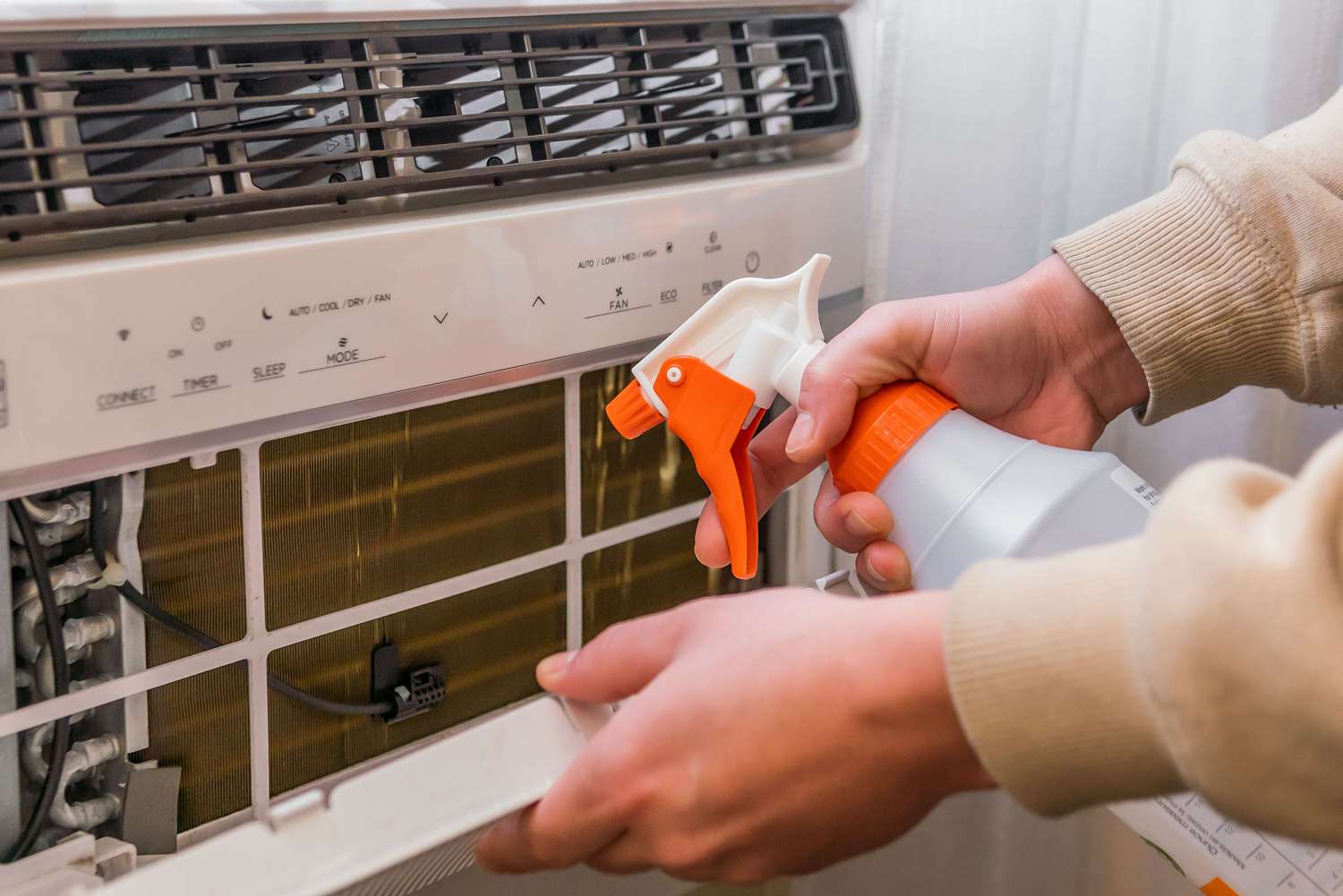
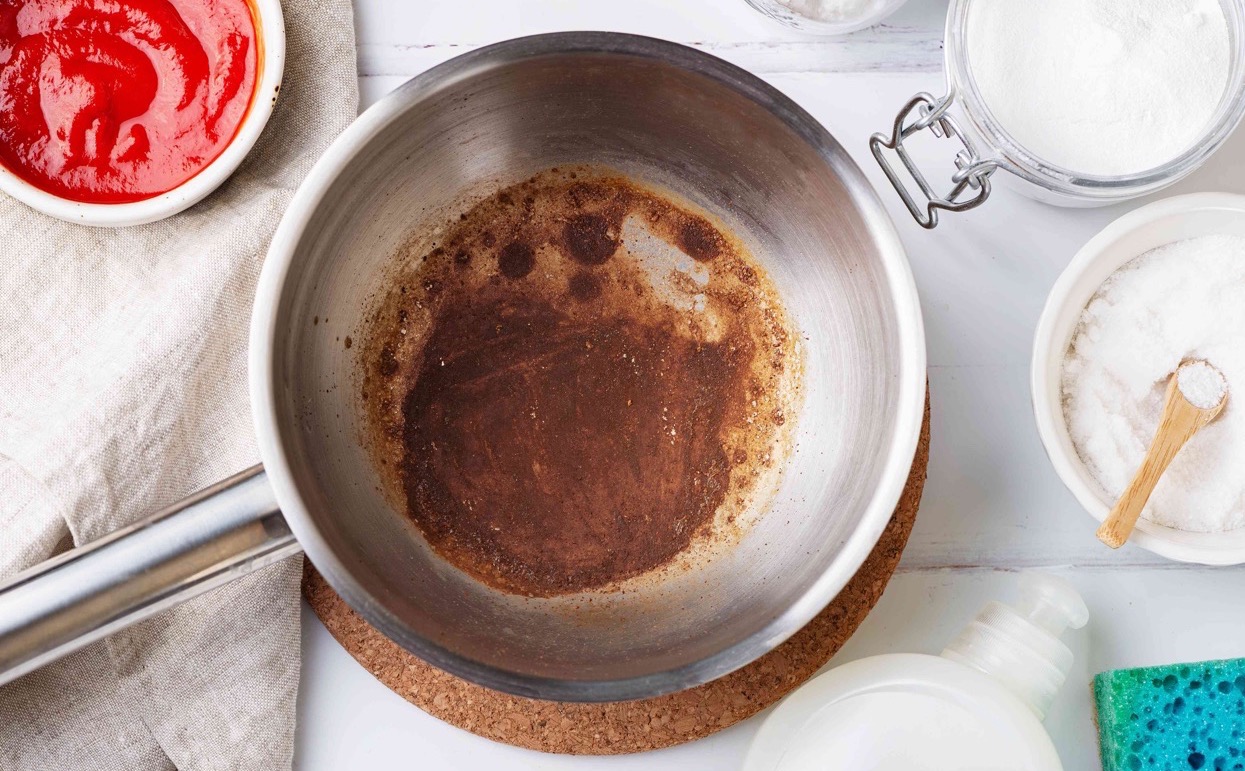



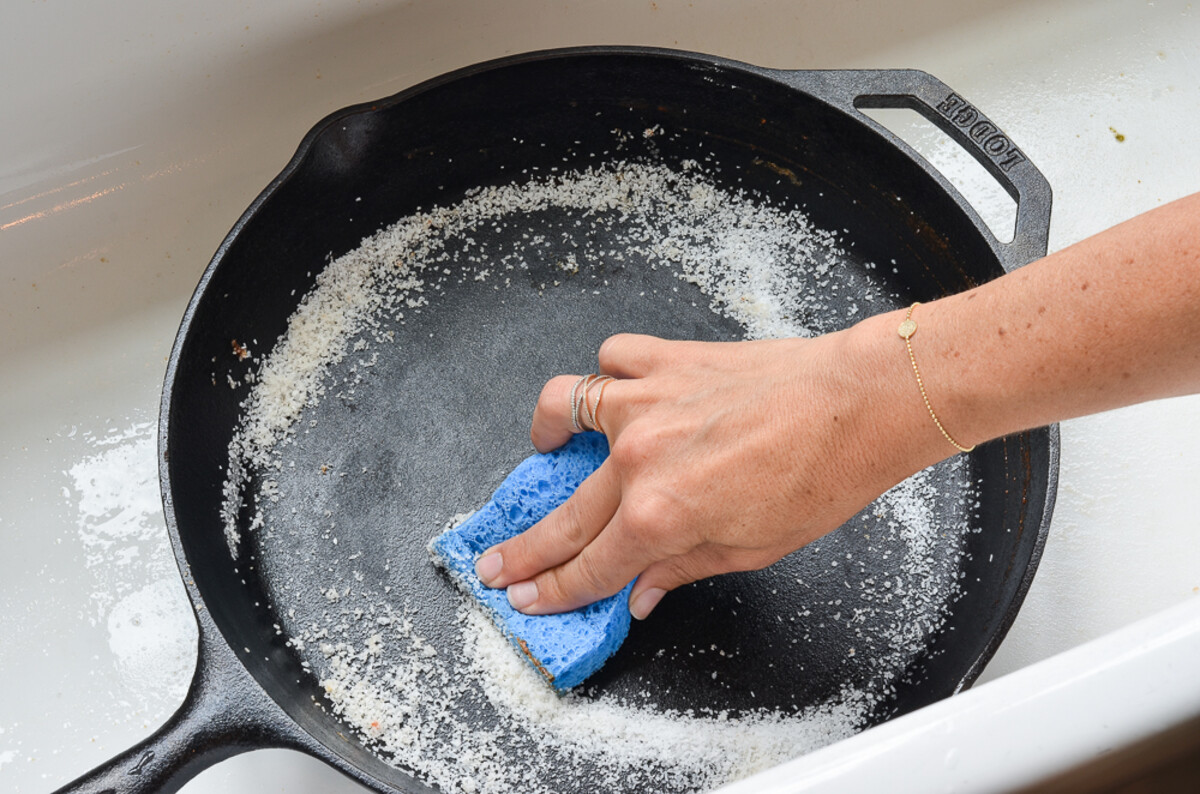
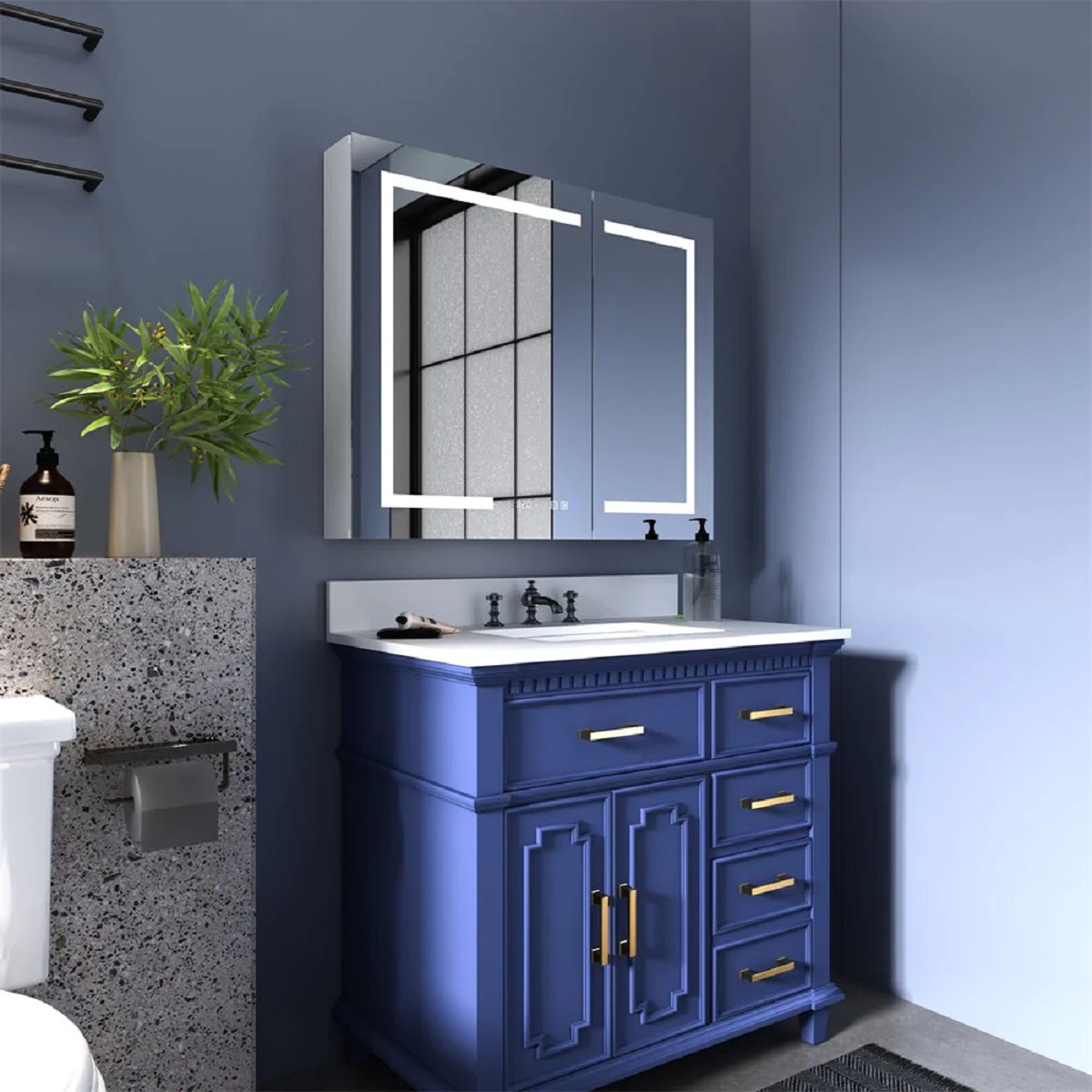
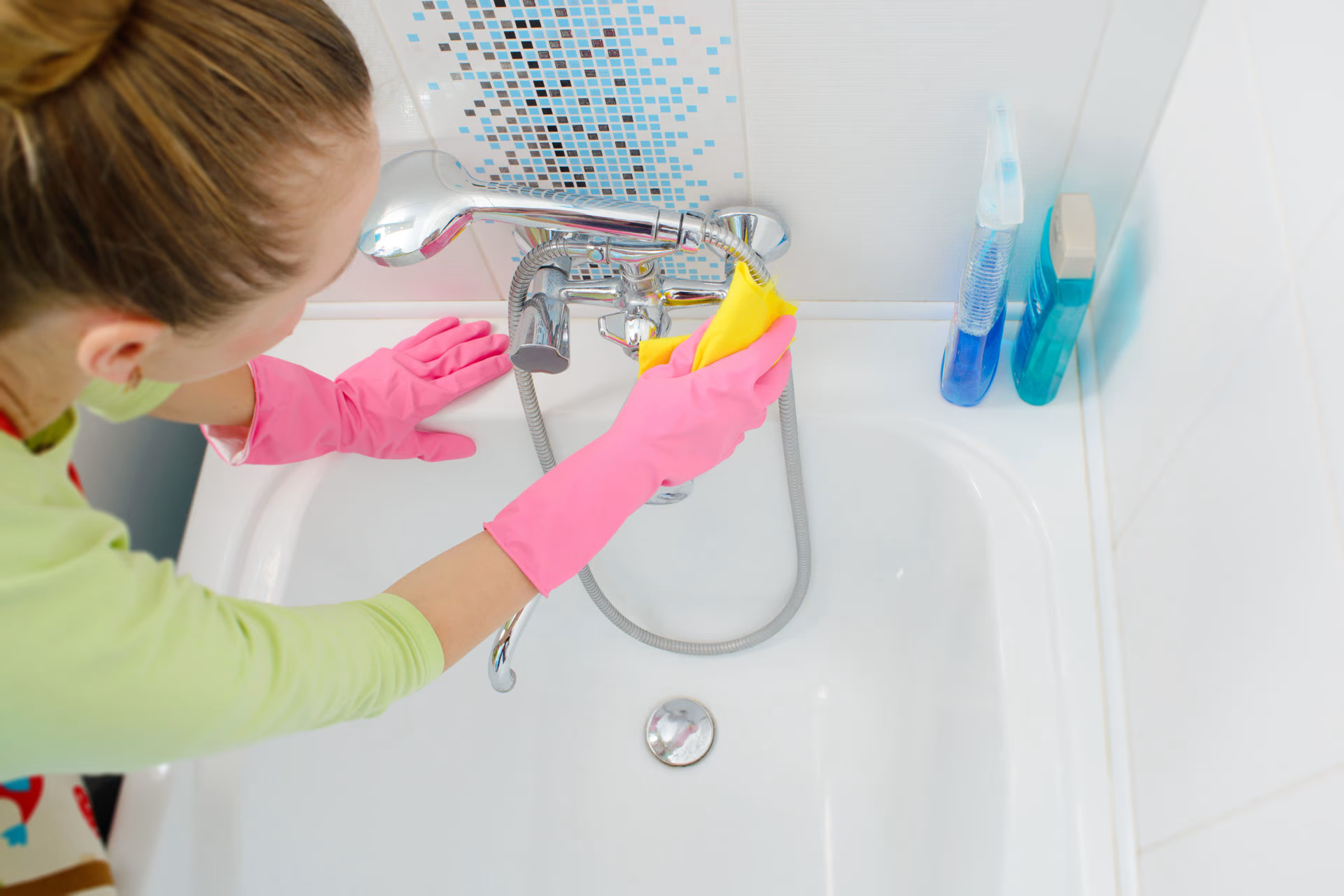



0 thoughts on “What Not To Store In A Bathroom Cabinet, According To Experts”